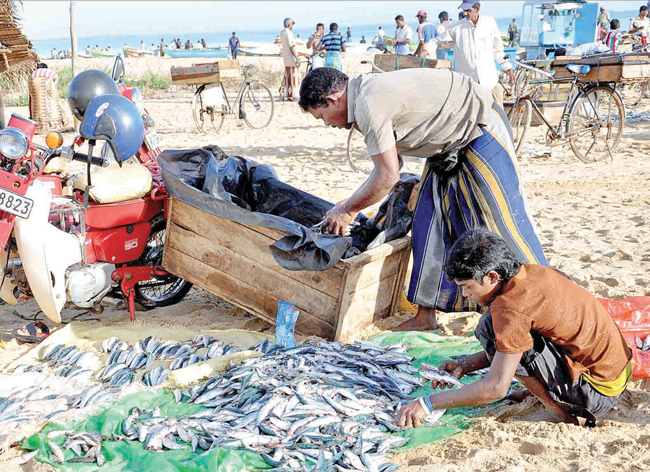
Wickremasinghe Government to employ school-going youth in “part time” jobs
By Sanjaya W. Jayasekera
Wickremasinghe government’s neo-liberal labour liberalization process has started. The government is about to amend existing labour laws to remove restrictions imposed on youth and women employment.
Under Sri Lankan law “young persons” have been defined as those between the age range of 16 to 18 years, while those below 16 are defined as children. Employable age, since January 2021, has been raised from 14 to 16. It is also legal for a child under the age of 16 to partake in family agri-business activities prior to or after school hours. These age restrictions are hardly met in practice.
The Bureau of Internatioal Labour Affairs states that “Children in Sri Lanka are subjected to the worst forms of child labor, including in domestic work and commercial sexual exploitation, each sometimes as a result of human trafficking”.
The new laws proposed by the Labour Minister will enable school children of 16 to 20 years of age to be employed by private companies in “part-time” jobs. The purpose of these measures, it is said, is to “give the youth of this age an opportunity to do part-time jobs” in order to give them “exposure and experience to a working environment”.
Capitalism demands exploitation of cheap labour and it is necessary that workers of a wide range of age groups are exploited for longer hours for meager wages.

The new laws permitting school-going youth to be employed will be the opening for widening the labour force, and would legalize youth labour exploitation, forced labour, and employment in hazardous and insecure work environments.
This measure of liberalization of the labour market will deprive the school-going youth of their childhood, creative and critical thinking, artistic training and classical education. In the backdrop of an increasing number of under-privleged children and youth are forced to help their poor parents to earn their daily-bread for their families, and to fund their education and health, the government is capitalizing this social misery to meet the demands of international capital, dictated especially by the International Monetary Fund (IMF) and the World Bank as a measure of severe austerity against the working class, its culture and education.
This is also another significant step away from State obligation to provide quality, free education to school-age youth.
In a similar measure, Laws are also proposed to extend working hours for women. In this regard, Shop and Office Employees (Regulation of Employment and Remuneration) Act No. 19 of 1954 will be suitably amended.
The World Bank has predicted that the Sri Lankan economy will contract by 7.6 percent in 2022. Faced by an unprecedented economic crisis, the government is hell-bent on reducing the budget deficit of 12.2% in 2021 to a budget surplus in three years. This requires severe cuts in social welfare spending and subsidies hitting the island’s free education system, healthcare and other social benefits.
Further liberalization of the Labour market, privatization or commercialization of state owned enterprises are already in the cabinet discussions of the government. Wickremasinghe is building a minimal-state backed by the police and military, converting the island into a competitive cheap labour platform for foreign investment.
References:
- School children between 16-20 permitted part-time employment
- Minimum Age for Emoloyment
- Child Labor and Forced Labor Reports
Image Courtesy of DailyNews.lk

